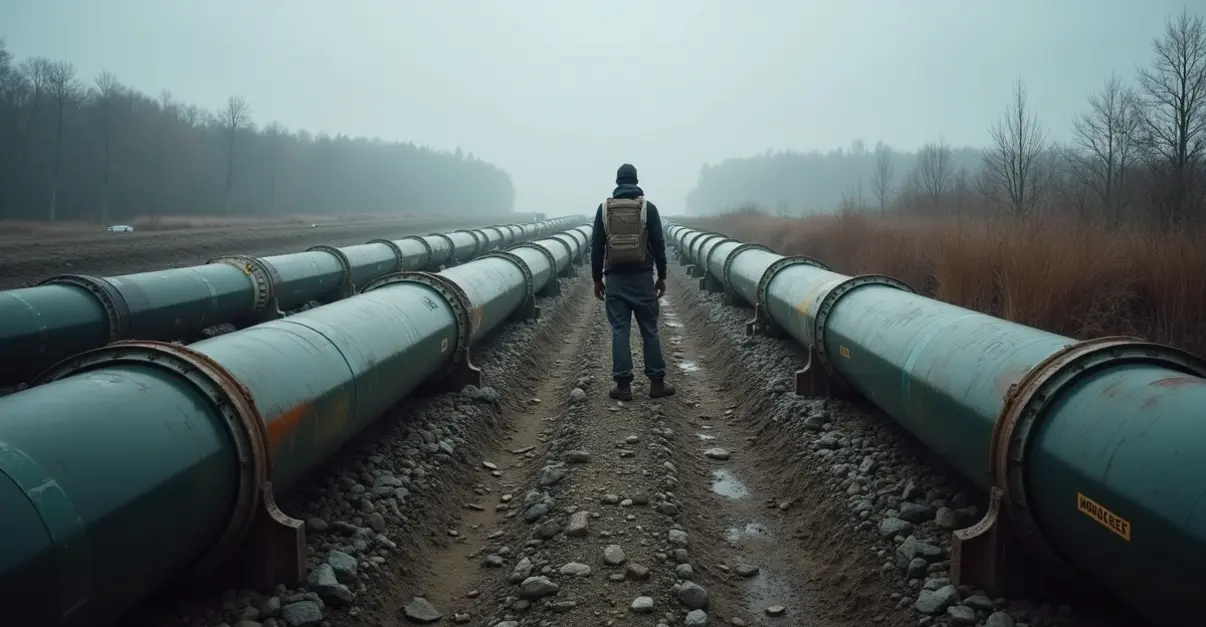Polish Court Rejects German Extradition Request for Nord Stream Suspect
A Polish court has dealt a significant blow to Germany's investigation into the 2022 Nord Stream pipeline sabotage by refusing to extradite Ukrainian suspect Volodymyr Z. to German authorities. The Warsaw District Court ordered the immediate release of the 46-year-old suspect, ruling that the alleged sabotage constituted a military operation during wartime rather than a criminal act.
Legal Battle Over Pipeline Sabotage
The court's decision on October 17, 2025, represents a major setback for German prosecutors who had been seeking the suspect for questioning regarding the September 2022 explosions that rendered three of the four Nord Stream pipelines inoperable. Judge Dariusz Lubowski stated that Germany provided only "very general information" about the case and argued that the alleged sabotage should be viewed as a military action.
Volodymyr Z., a trained diver, was arrested in Poland in September 2025 after evading capture since August 2024. German authorities allege he was part of a group that rented a sailing yacht from Rostock using forged documents and planted explosives on the pipelines near Denmark's Bornholm island in international waters.
Political Implications and Reactions
Polish Prime Minister Donald Tusk welcomed the court's decision, stating on social media platform X: "The case is closed. The problem was not that Nord Stream was blown up, but that it was ever built in the first place." Tusk had previously argued that extraditing the suspect would be "against Poland's interests."
The defense lawyer for Volodymyr Z. emphasized that his client maintains his innocence. "My client does not understand why Germany is accusing him. He admits no guilt and has committed no crime against Germany," the lawyer stated before the hearing. He further argued that Ukrainians should not be prosecuted for actions taken against Russia during the ongoing conflict.
International Legal Complexities
This ruling follows a similar decision by Italy's Supreme Court earlier in October 2025, which overturned the extradition of another Ukrainian national, Serhii Kuznetsov, wanted by Germany on related charges. The court questioned the legal basis for the arrest and ordered the case to be reconsidered.
The Nord Stream pipelines, consisting of Nord Stream 1 and Nord Stream 2, were designed to transport natural gas from Russia to Germany through the Baltic Sea. The sabotage occurred at a time when neither pipeline was actively transporting gas due to political tensions following Russia's invasion of Ukraine in February 2022.
Geopolitical Context
Poland has long opposed the Nord Stream project, arguing that it made Europe overly dependent on Russian gas and increased Moscow's influence in the region. The pipeline explosions occurred just one day before Poland and Norway opened the Baltic Pipe, which brings gas from the North Sea rather than Russia.
German investigators have previously identified seven Ukrainian suspects in the case, including former members of a private diving school in Kyiv. However, they have not alleged direct involvement by the Ukrainian government. The investigation continues to face complex legal and diplomatic challenges across multiple European countries.
The court's ruling highlights the ongoing tensions between European nations regarding how to handle cases related to the Ukraine conflict and raises questions about the future of international cooperation in investigating the Nord Stream sabotage.

 Nederlands
Nederlands
 English
English
 Deutsch
Deutsch
 Français
Français
 Español
Español
 Português
Português










